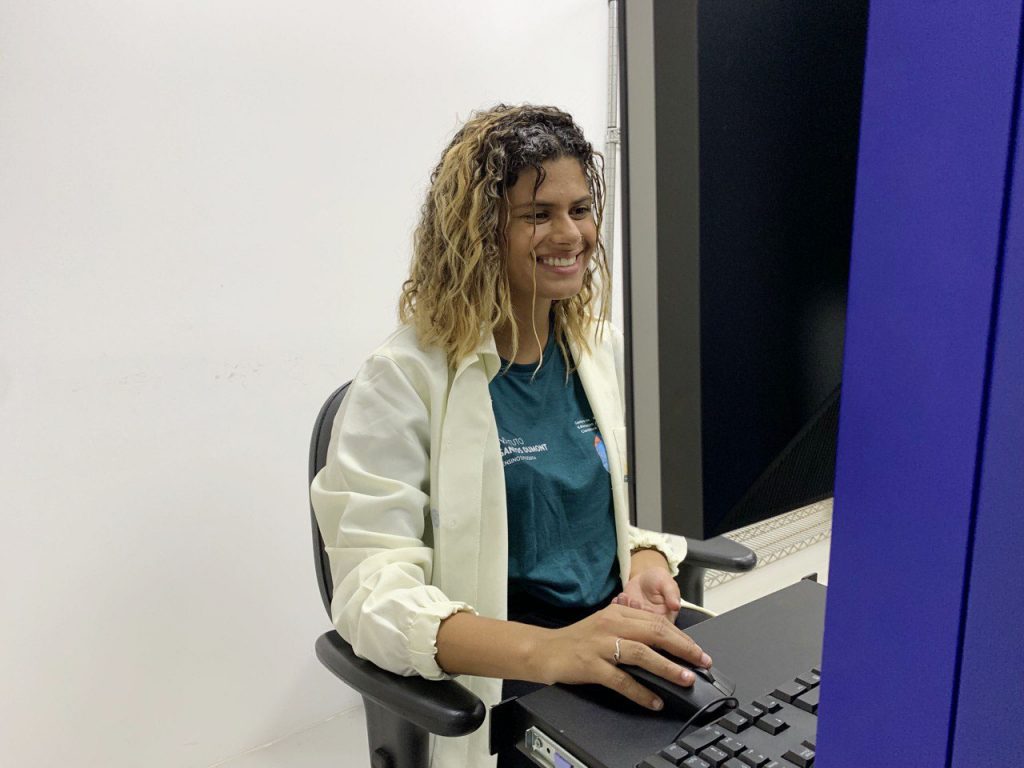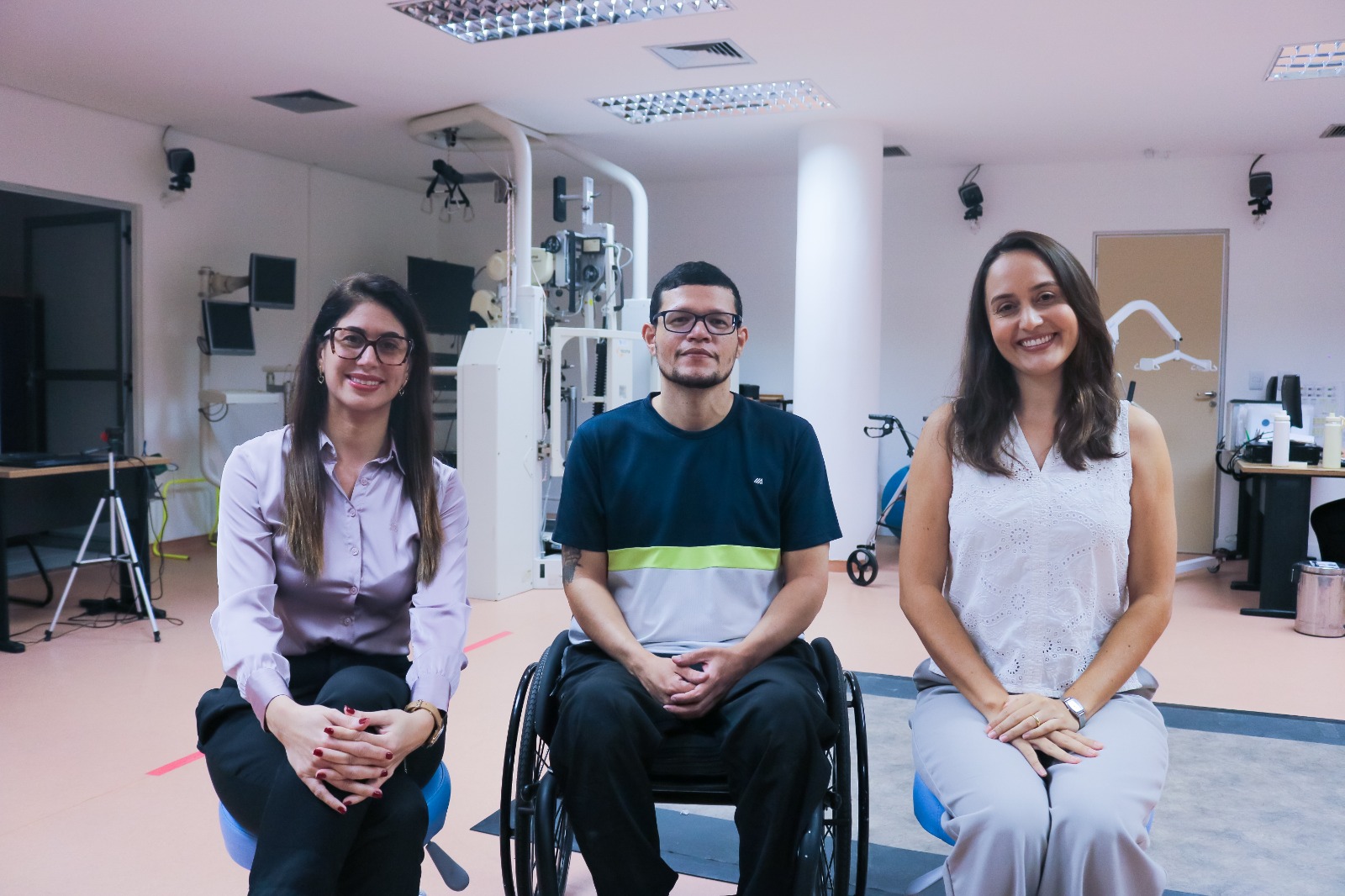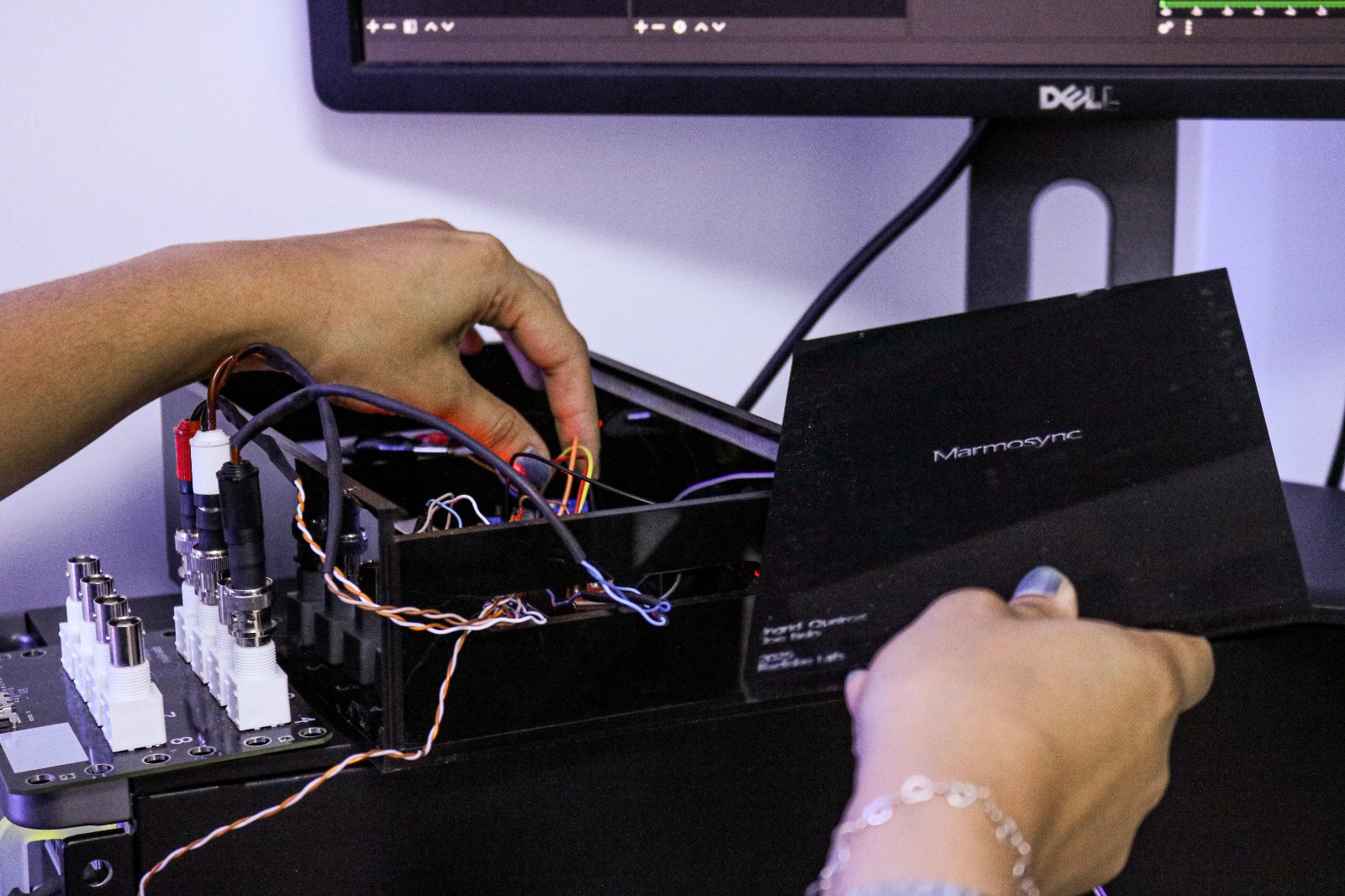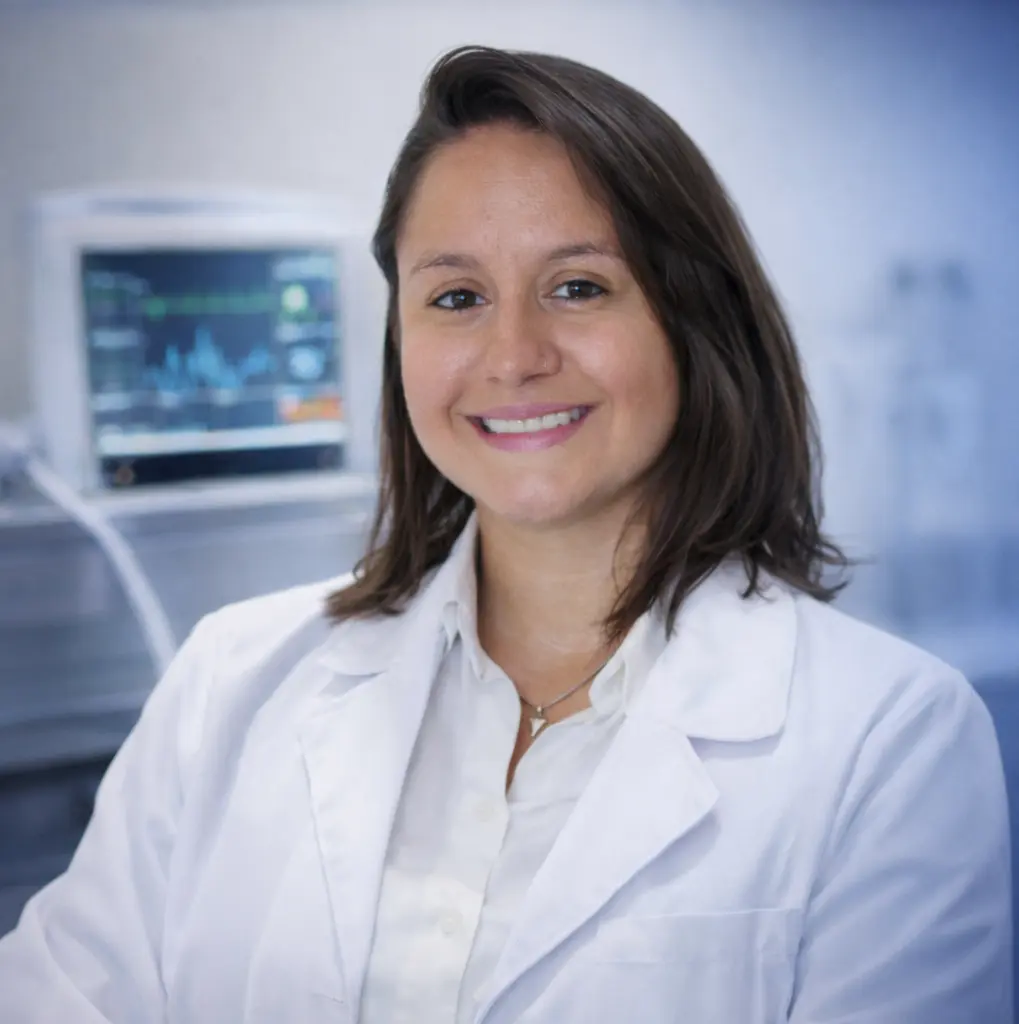February 11th is marked, since 2015, by the celebration of the International Day of Women and Girls in Science. Established in an Assembly of the United Nations (UN), the date highlights the female role in the academic and scientific areas, highlighting the need for greater visibility and occupation of spaces by women in the labor market, education or research.
At Instituto Santos Dumont (ISD), research and scientific production are present in the reality of women in all areas of activity, from preceptors to master's students. Get to know the trajectory and production of five representatives of the Institute who, in their different areas and moments of life, contribute to making the scientific space richer and more diverse:
Science in the community, for the community
Popular education has always been something that drew the attention of Sarah Lima, a psychologist and resident in the Multidisciplinary Residency Program in Health Care for Persons with Disabilities at the ISD. As the theme of his Residency Completion Work (TCR), he chose to investigate, in a historical and generational way, play and child development in the quilombola community of Capoeiras, in the rural area of Macaíba. “We tried to find out about what games were like in the past and how they pass from one generation to the next, which is a very important cultural factor to understand how this relates to the development of these children”, he explains.

According to Sarah, the methodology used, the Translation of Knowledge, allows characterizing what play is, encouraging the community and the school to unite the act of playing with the quilombola tradition. The research goes through a questionnaire with parents and guardians, observation of the children and characterization of the generational context, returning to the school a basis of how games can be applied to stimulate learning and development.
The experience of qualitative research is, for Sarah, challenging, but fundamental, because there is direct contact with the daily life and development of people in the Capoeiras community. “Community-produced science is one of the most complicated and important types. A great challenge for the human and social sciences, a great responsibility, is dealing directly with people's lives, with the community. It involves a need for adequacy, cultural competence, getting out of the lens that we normally use and perceiving through the lens of the other”, he points out.
Science with social responsibility
For physician Carolina Damásio, ISD infectologist preceptor, the interest in uniting scientific research with clinical care has intensified after acting on the front line of Covid-19. The pandemic was, for Carolina, a “watershed”, and the work of science and researchers stimulated her scientific career. For Carolina, the survey stands out both for being able to reach more people and for its social responsibility, especially in times of mass misinformation.

“I work with infections during pregnancy and until today we have to encourage pregnant women to get vaccinated, to update their booster doses and to vaccinate their children. Misinformation was so strong in the pandemic that it is still reverberating, so, as scientists, we see the importance of mass dissemination, of getting information to people and doing it effectively, with accessible language, to try to reduce this misinformation. around the world”, reinforces Carolina.
The research also brings, in the professional's view, a social transformation. “The focus of my master's degree was to bring better health to the community, train professionals in training in cultural skills and social responsibility. This is the type of research I like to do, to provide answers to what we are seeing. It is very important that science also bring the ways and answers of what needs to be done and make this improvement reach the population”, completes the professional.
Occupying all spaces
Erika Garcia is a biomedical engineer and a master's student at the Postgraduate Program in Neuroengineering at ISD. In his master's degree, his research is focused on the development of a system aimed at reducing epileptic seizures by uniting programming, data analysis and the use of hardware. The project includes the analysis of brain connectivity in regions related to epileptic seizures, allowing real-time monitoring, and the union of an algorithm with an electrostimulator, which is activated every time an epileptic seizure occurs.

Erika observes that, as a female researcher in the field of exact sciences and technology, there are still barriers to gaining visibility and credibility within the academic and scientific area and in the work dynamics itself, and she believes that it is a constant need to occupy these spaces.
“At first, I didn't believe in the potential of developing this project, I had to fight to do what I wanted in the area I wanted. We often doubt ourselves, but it's important to keep doing it. It is important to encourage, from childhood, that there are spaces in science and that they should be occupied by women”, she reinforces.
Linking theory to practice
The union of clinical experience and research is part of the reality of Caroline Cunha do Espírito Santo, physiotherapist and research professor at ISD. At the beginning of her training, the professional had in mind only acting as a physiotherapist. Over time, the desire to be a teacher arose, and with that, training in neuroscience and initiation into research and scientific production.

Currently, the professional conducts research on Parkinson's disease and spinal cord injury, focused on recovery from walking and walking through external assistance, such as functional electrical stimulation. This work has a translational character, involving a flow of information that goes through different applications and research areas, from laboratory benches to rehabilitation rooms.
“Neuroscience was important because it brought concepts and tools that I didn't have before and that can be applied to my clinical practice. We have this multidisciplinary contact, I had the opportunity to work with biologists, physical educators and pharmacists, to relate scientific concepts with what happens and observe in practice, all within neuroscience”, he says.
Scientist “since I was a little girl”
Since she was a child, Ana Júlia Lopes dreamed of being a scientist, inventing and thinking “outside the box”. One of the gateways to making this dream come true was the 1st ISD Science and Scientific Exhibition Fair, at the National Science and Technology Week, in 2022. The student won one of the awards at the event and became the Institute's Scientific Initiation student .

The winning project was the Sinensi application, aimed at the cognitive development of children with ADHD, boosting motor coordination, memory and other aspects. The product was her first contact with scientific production, and it encouraged her to learn about programming, design and technology. Currently, at ISD, research on virtual reality in the rehabilitation process.
For the student, the incentive and learning possibilities are transformative. “It makes all the difference to hear 'this is possible'. It's not because you're 16 or 17 that you can't, you can learn anything you want, as long as you try. I realized that I can learn advanced things and I don't need to be limited to just one type of knowledge”, she says.
Text: Naomi Lamarck / Ascom – ISD
Photos: Ascom ISD
Communication Office
comunicacao@isd.org.br
(84) 99416-1880
Santos Dumont Institute (ISD)
It is a Social Organization linked to the Ministry of Education (MEC) and includes the Edmond and Lily Safra International Institute of Neurosciences and the Anita Garibaldi Health Education and Research Center, both in Macaíba. ISD's mission is to promote education for life, forming citizens through integrated teaching, research and extension actions, in addition to contributing to a fairer and more humane transformation of Brazilian social reality.













